
Sanjeev Kumar, born Harihar Jethalal Jariwala on July 9, 1938, remains one of the most revered actors in the history of Hindi cinema. Known for his unparalleled versatility, he brought to life a diverse array of characters in iconic films such as Sholay, Aandhi, Namkeen, Koshish, and Anamika. While he may not have enjoyed the same level of mainstream stardom as contemporaries like Rajesh Khanna or Dilip Kumar, Sanjeev Kumar carved a niche for himself with his ability to portray complex, often older characters with remarkable authenticity. His journey from a former stuntman to a celebrated actor’s actor is a testament to his talent, perseverance, and the unwavering support of those who believed in him. However, behind the cinematic brilliance lay a personal life marked by failed relationships, unfulfilled love, and a tragic end at the age of 47. This article delves into the life, career, and legacy of Sanjeev Kumar, exploring his rise to fame, his personal struggles, and the loyalty of his unsung hero, Jamnadas.
A Star is Born: The Early Life of Sanjeev Kumar
Harihar Jethalal Jariwala, later known as Sanjeev Kumar, was born in Surat, Gujarat, into a Gujarati family. From a young age, he displayed a passion for acting, performing in local theater productions that showcased his natural talent. His early years were marked by modest beginnings, and he initially worked as a stuntman in the film industry, taking on small, uncredited roles. Despite the challenges of breaking into the competitive world of Hindi cinema, Sanjeev’s determination and love for the craft kept him going. His ability to embody diverse characters, from intense dramatic roles to light-hearted comedic ones, set him apart even in his early days.
Sanjeev Kumar’s stage performances were particularly notable, earning him admiration from those who witnessed his raw talent. His work in theater caught the attention of industry insiders, laying the groundwork for his eventual transition to the silver screen. However, the path to stardom was far from easy, and it was his perseverance, coupled with the support of a loyal confidant, that would eventually lead to his big break.
The Breakthrough Role: Sanjeev Kumar in Sunghursh
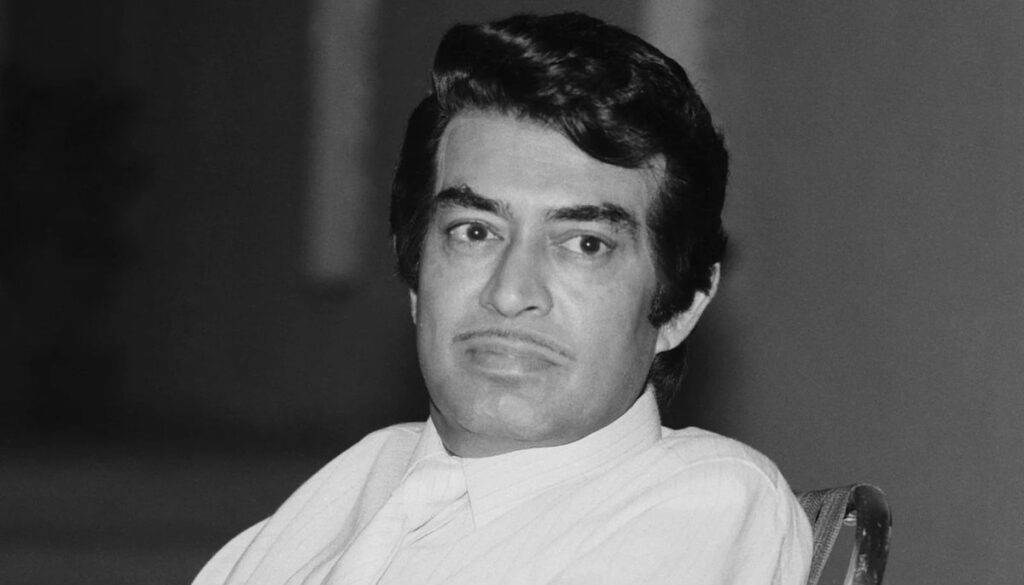
In the late 1960s, Sanjeev Kumar was a struggling actor grappling with self-doubt and the uncertainties of a competitive industry. His breakthrough came with the 1968 film Sunghursh, a drama directed by HS Rawail that starred the legendary Dilip Kumar. The film revolved around Bhawani Prasad, a criminal posing as a holy man, who forcibly takes his grandson Kundan (played by Dilip Kumar) to follow in his footsteps. Sanjeev Kumar portrayed Dwarka Prasad, a character tasked with ending a feud between two families. The role required an actor who could hold his own opposite Dilip Kumar, one of the most formidable talents in Indian cinema.
Securing this role was no small feat. Many established actors declined the part, fearing they would be overshadowed by Dilip Kumar’s towering presence. Sanjeev, still known as Harihar Jariwala at the time, believed he was right for the role but lacked the confidence to approach Rawail directly. This is where his loyal secretary, Jamnadas, stepped in as his tireless advocate. Jamnadas relentlessly visited Rawail’s office, armed with photographs and a passionate belief in Sanjeev’s talent. Despite being turned away multiple times and even banned from the office, Jamnadas refused to give up.
In a stroke of ingenuity, Jamnadas enlisted the help of Ramesh Saigal, a director and close friend of Rawail. Under the pretext of discussing another project, Saigal showed Rawail clips of Sanjeev’s unreleased work. These reels left an impression on Rawail, who recognized Sanjeev as the same actor whose stage performance had captivated him years earlier. Convinced of his potential, Rawail cast Sanjeev in Sunghursh, marking a turning point in his career.
The filming of Sunghursh at Famous Studio in Mahalaxmi was a defining moment for Sanjeev Kumar. His first scene, a silent chess game opposite Dilip Kumar, was executed with such precision that it required no retakes. His performance in the film earned him critical acclaim and established him as an actor capable of matching the industry’s biggest stars. However, rumors circulated that Dilip Kumar was reluctant to work with Sanjeev again, allegedly due to professional rivalry. Dilip Kumar later clarified that he had only turned down weak scripts, and the two actors went on to collaborate in the 1982 film Vidhaata. The success of Sunghursh solidified Sanjeev Kumar’s place in Hindi cinema, but it was Jamnadas’s unwavering loyalty that made it all possible. In a touching gesture, Rawail later shared with Sanjeev how fiercely Jamnadas had fought for him, leading Sanjeev to affectionately refer to him as “Jamnadas ji” from then on.
A Versatile Virtuoso: Sanjeev Kumar’s Iconic Roles
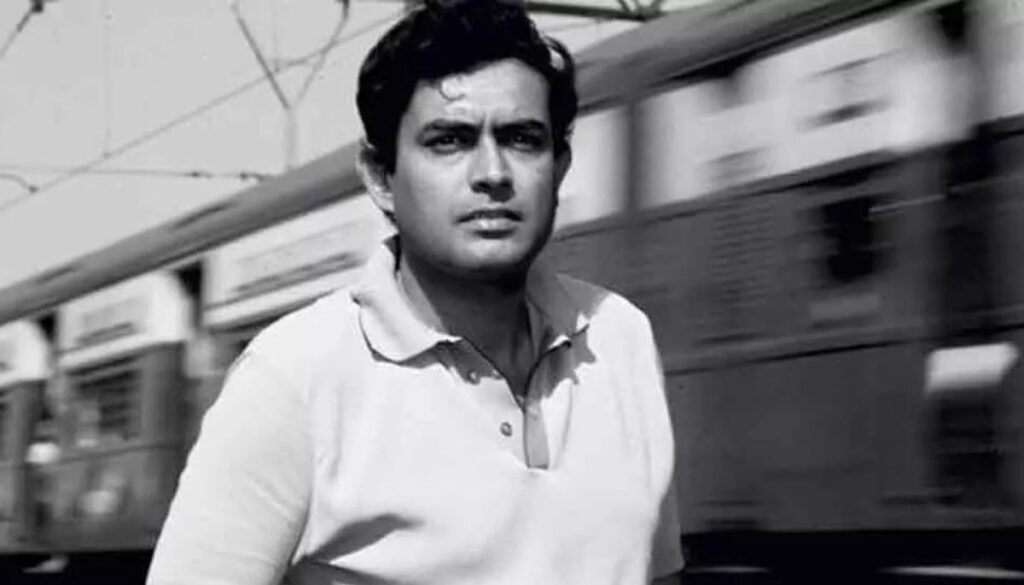
Sanjeev Kumar’s career was defined by his ability to transcend typecasting and embrace a wide range of roles. Unlike many of his contemporaries who were confined to romantic or action-oriented roles, Sanjeev excelled in portraying characters of varying ages, emotions, and complexities. His performances in films like Sholay (1975), where he played the iconic Thakur Baldev Singh, showcased his ability to convey quiet strength and emotional depth. In Aandhi (1975), he portrayed a conflicted politician navigating love and duty, earning praise for his nuanced performance opposite Suchitra Sen.
In Koshish (1972), Sanjeev delivered one of his most memorable performances as a deaf and mute man striving for a better life, demonstrating his mastery of non-verbal acting. His chemistry with Jaya Bachchan in the film was lauded for its authenticity and emotional resonance. Similarly, in Namkeen (1982), he brought to life the character of a lonely man forming an unexpected bond with three sisters, showcasing his ability to portray understated, heartfelt emotions. Films like Anamika (1973) and Mausam (1975) further highlighted his versatility, as he seamlessly transitioned between romantic, dramatic, and comedic roles.
Sanjeev Kumar’s willingness to take on older roles, even in his 20s and 30s, set him apart from his peers. This unique choice earned him a loyal fan base who appreciated his commitment to the craft over conventional stardom. His ability to immerse himself in every character, regardless of the role’s prominence, earned him the title of an “actor’s actor.” Directors and co-stars alike admired his professionalism, dedication, and ability to elevate every scene he was in.
The Personal Struggles: Love, Loss, and Loneliness
While Sanjeev Kumar’s professional life was marked by success, his personal life was fraught with challenges. Known for his charm and charisma, he was popular among women and never shied away from discussing his relationships. According to a report by The Indian Express’ Screen, Sanjeev openly shared details of his romantic life with close friends, even humorously numbering his girlfriends. Actor Anju Mahendroo recalled, “Whenever he was seeing a girl, he’d share it with me. We had numbered his girlfriends 1, 2, 3… He’d call up and say, Number 3 called me up today and number 9 reacted in this manner.”
Sanjeev’s relationships with prominent actresses like Hema Malini, Shabana Azmi, Saira Banu, and Sulakshana Pandit were widely discussed in the media. His romance with Hema Malini, in particular, captured public attention. According to the book An Actor’s Actor, Sanjeev was deeply in love with Hema and wanted to marry her. However, cultural differences and his expectation that Hema stop working after marriage created insurmountable barriers. Similarly, his relationship with Shabana Azmi did not culminate in marriage due to his mother’s disapproval of an interfaith alliance.
These failed relationships took a significant emotional toll on Sanjeev. Reports suggest that his unfulfilled love life was a source of deep pain, contributing to his struggles with loneliness. In his later years, he turned to food and alcohol as coping mechanisms, which began to affect his health. Despite undergoing bypass surgery following a massive heart attack, Sanjeev found it challenging to curb his habits. Tragically, another heart attack claimed his life in 1985 at the age of 47, leaving behind a legacy that continues to resonate with audiences.
The Legacy of Sanjeev Kumar
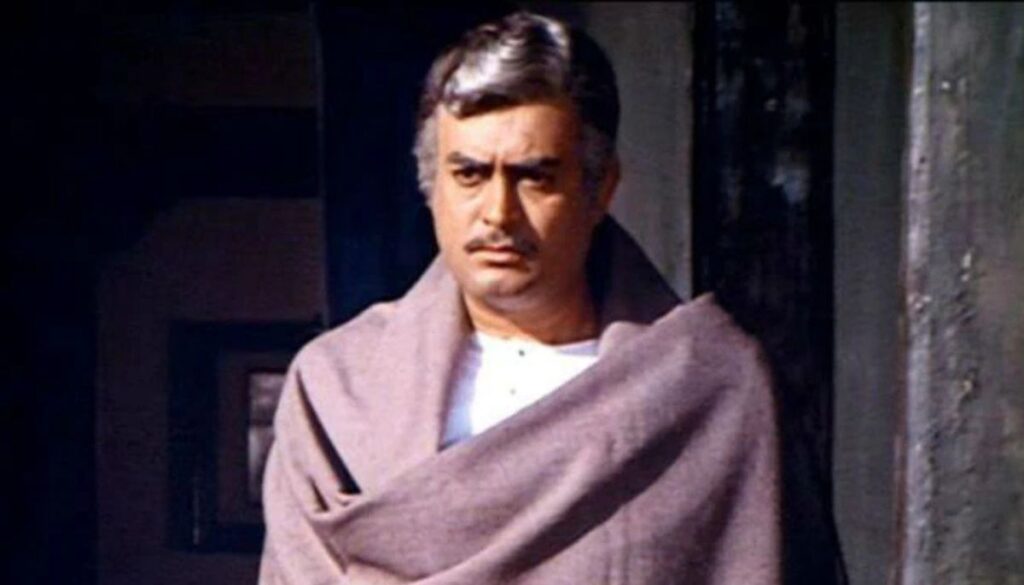
Sanjeev Kumar’s untimely death was a profound loss to Hindi cinema, but his contributions remain timeless. His ability to portray characters with depth and authenticity set a benchmark for acting that continues to inspire generations of actors. Films like Sholay, Koshish, and Aandhi are considered classics, and Sanjeev’s performances in these films are studied by aspiring actors and filmmakers alike.
Beyond his on-screen brilliance, Sanjeev Kumar’s story is one of resilience and determination. From his humble beginnings as a stuntman to his rise as one of India’s finest actors, his journey reflects the power of talent and perseverance. The role of Jamnadas in securing his breakthrough in Sunghursh underscores the importance of loyalty and support in achieving success. Jamnadas’s unwavering belief in Sanjeev’s potential serves as a reminder that behind every great artist is often an unsung hero who helps pave the way.
Sanjeev Kumar’s personal struggles, while heartbreaking, humanize the legend, reminding us that even the most talented individuals face challenges in their personal lives. His openness about his relationships and his vulnerability in dealing with heartbreak made him relatable to fans, who admired not only his craft but also his authenticity as a person.
The Enduring Appeal of Sanjeev Kumar
Decades after his passing, Sanjeev Kumar’s films continue to captivate audiences. His performances are a masterclass in acting, blending intensity, subtlety, and emotional depth. Whether playing a vengeful Thakur in Sholay or a tender-hearted lover in Mausam, Sanjeev brought a unique authenticity to every role. His willingness to take risks, such as playing older characters at a young age, showcased his commitment to the art of storytelling over commercial considerations.
For fans of Hindi cinema, Sanjeev Kumar remains a symbol of versatility and excellence. His films are a treasure trove of performances that continue to inspire and entertain. Streaming platforms have introduced his work to new generations, ensuring that his legacy endures. From the intense drama of Sunghursh to the emotional depth of Koshish, Sanjeev Kumar’s body of work is a testament to his extraordinary talent and dedication to his craft.
Sanjeev Kumar: Life, Career, Love & Legacy – At a Glance
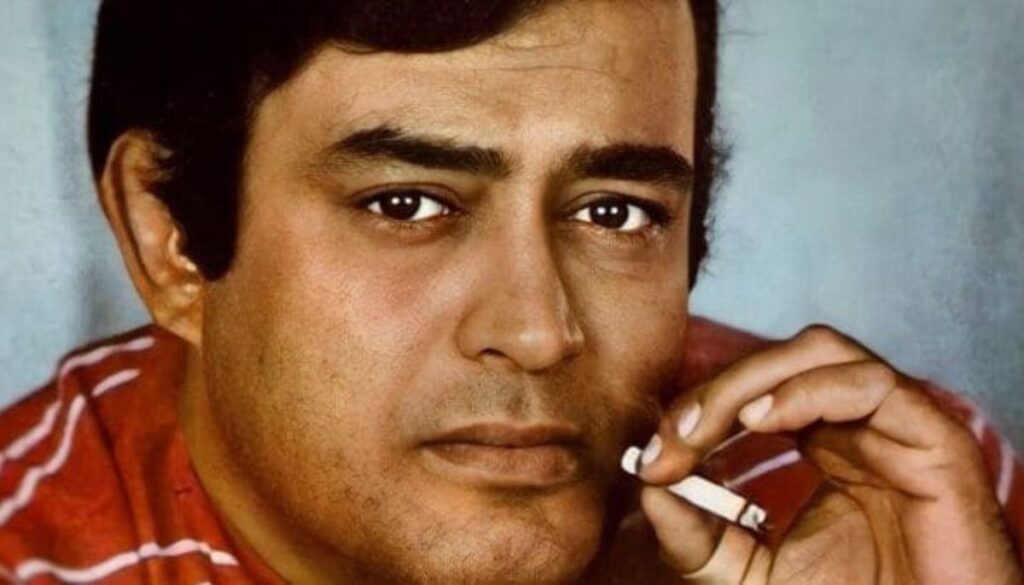
| Category | Details |
|---|---|
| Real Name | Harihar Jethalal Jariwala |
| Stage Name | Sanjeev Kumar |
| Date of Birth | 9 July 1938 |
| Date of Death | 6 November 1985 (aged 47) |
| Early Career | Started as a stage actor and stuntman; struggled initially in Bollywood |
| Breakthrough Film | Sunghursh (1968), directed by HS Rawail, opposite Dilip Kumar |
| Key Support in Career | Secretary Jamnadas, who tirelessly campaigned for his role in Sunghursh |
| Most Iconic Films | Sholay, Aandhi, Koshish, Namkeen, Anamika, Angoor, Trishul |
| Signature Strengths | Known for portraying elderly roles and complex characters with unmatched realism |
| Notable Traits | Versatile performer, master of silence in acting, revered as an “actor’s actor” |
| Romantic Relationships | Had relationships with leading actresses like Hema Malini, Sulakshana Pandit, Shabana Azmi, and Saira Banu |
| Unrequited Love | Proposed to Hema Malini; turned down reportedly due to his request that she quit acting post-marriage |
| Failed Marriage Plan | Marriage with Shabana Azmi fell through due to his mother’s disapproval of an interfaith union |
| Emotional Challenges | His unfulfilled love life led to emotional isolation later in life |
| Health Struggles | Suffered from heart ailments; underwent bypass surgery after a major heart attack |
| Cause of Death | Passed away due to a second heart attack in 1985 at just 47 years old |
| Final Years | Battled loneliness, turned to food and alcohol for comfort; attempted to reduce consumption post-surgery |
| Legacy | Celebrated for depth and intensity in performances; inspired generations of actors |
| Behind His Big Break | Secured Sunghursh role through Jamnadas’ perseverance; director Rawail recognized him after seeing old stage performance footage |
| Notable Anecdote | First scene with Dilip Kumar (chess game in Sunghursh) completed in one flawless take; Rawail was deeply moved by his talent |
| Tribute to Loyalty | After Sunghursh, Sanjeev Kumar always referred to his secretary as “Jamnadas ji” in gratitude for unwavering belief and support |
| Enduring Reputation | Remembered as one of Hindi cinema’s most emotionally resonant and technically skilled actors; left a void that remains unfilled |
Conclusion: A Timeless Icon
Sanjeev Kumar’s life was a blend of triumphs and tragedies, a story of a man who rose from humble beginnings to become one of Hindi cinema’s greatest actors. His journey from a stuntman to a celebrated performer, facilitated by the unwavering support of Jamnadas, is a testament to the power of perseverance and loyalty. While his personal life was marked by heartbreak and struggles, his professional achievements continue to shine brightly.
As we reflect on Sanjeev Kumar’s legacy, we are reminded of the timeless quality of his performances and the impact he had on Indian cinema. His ability to breathe life into every character, regardless of the role’s size or scope, sets him apart as an actor’s actor. Though he left the world too soon, Sanjeev Kumar’s contributions to cinema ensure that he will forever remain a beloved icon in the hearts of moviegoers.
Frequently Asked Questions (FAQ) About Sanjeev Kumar’s Life and Legacy
Q1. Who was Sanjeev Kumar and why is he celebrated in Indian cinema?
A: Sanjeev Kumar, born Harihar Jethalal Jariwala on July 9, 1938, was an iconic Indian actor known for his versatility and depth in portraying complex characters. Despite often playing older roles, he became a respected figure in Hindi cinema with memorable performances in classics like Sholay, Aandhi, Koshish, and Namkeen.
Q2. What was Sanjeev Kumar’s early background in acting?
A: Before achieving stardom, Sanjeev Kumar worked in theater and even as a stuntman. His journey to mainstream cinema began with minor roles, but it was his commitment to acting and support from people like his secretary Jamnadas that helped him land breakthrough opportunities.
Q3. How did Sanjeev Kumar get his breakthrough role in Sunghursh (1968)?
A: Kumar’s major breakthrough came with Sunghursh, where he played Dwarka Prasad alongside Dilip Kumar. His secretary, Jamnadas, played a crucial role in securing this opportunity by persistently advocating for him and eventually convincing director H.S. Rawail to give him a chance through strategic networking with industry peers.
Q4. What set Sanjeev Kumar apart from other actors of his time?
A: While contemporaries like Rajesh Khanna and Amitabh Bachchan rose as romantic or action heroes, Kumar often took on unconventional and emotionally nuanced roles. His ability to portray older characters with authenticity and empathy gave him a distinct identity and critical acclaim.
Q5. What were some of Sanjeev Kumar’s most iconic films?
A: Some of his landmark films include:
- Sholay (as Thakur Baldev Singh)
- Koshish (a mute and deaf man)
- Aandhi (a political drama)
- Namkeen (sensitive family drama)
- Anamika and Trishul
His roles in these films showcased a wide emotional range and made him a household name.
Q6. Was Sanjeev Kumar ever married?
A: No, Sanjeev Kumar remained unmarried throughout his life. Although he had serious relationships, including with Hema Malini and Shabana Azmi, circumstances and family objections led to failed engagements, contributing to emotional distress in his later years.
Q7. What was the story behind his relationship with Hema Malini?
A: Sanjeev Kumar proposed to Hema Malini, but the relationship ended reportedly due to his traditional views — he wanted her to quit acting post-marriage, which she declined. Cultural differences also played a role in the relationship not materializing into marriage.
Q8. What caused Sanjeev Kumar’s untimely death?
A: Sanjeev Kumar passed away from a second heart attack on November 6, 1985, at the age of 47. He had undergone bypass surgery earlier but continued to struggle with health issues, partly due to excessive alcohol consumption and emotional distress from personal setbacks.
Q9. How did Sanjeev Kumar’s personal life affect his career and health?
A: His unfulfilled relationships, particularly with leading actresses, deeply affected him emotionally. Over time, he reportedly turned to food and alcohol for solace, which worsened his health. Despite this, he remained committed to cinema till his final days.
Q10. What is Sanjeev Kumar’s lasting legacy in Indian cinema?
A: Sanjeev Kumar is remembered as an “actor’s actor” — someone who prioritized craft over stardom. His performances continue to be studied by aspiring actors, and his films remain relevant for their emotional depth and character-driven narratives. His story is also a poignant reminder of how fame doesn’t always guarantee personal fulfillment.
Q11. Who was Jamnadas, and what role did he play in Sanjeev Kumar’s success?
A: Jamnadas was Kumar’s secretary and trusted aide who went above and beyond to support his career. His relentless efforts to pitch Sanjeev for Sunghursh led to the breakthrough that changed Kumar’s life. Director H.S. Rawail later acknowledged Jamnadas’ dedication by respectfully calling him “Jamnadas ji.”
Q12. Did Sanjeev Kumar ever work again with Dilip Kumar after Sunghursh?
A: Despite industry rumors that Dilip Kumar avoided working with him due to being overshadowed, the two collaborated again in Vidhaata (1982), disproving those claims and reaffirming Sanjeev’s stature as a respected peer among legends.






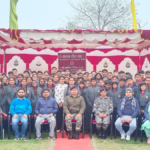
Leave a Reply